What We Do
Mission and Vision
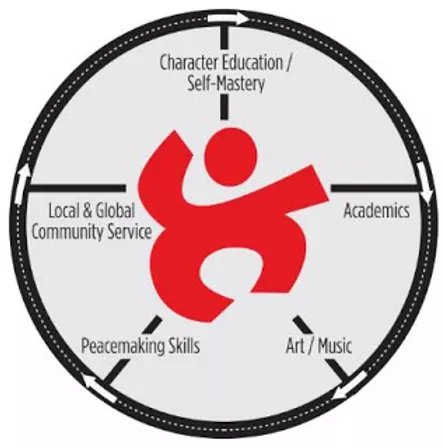
Full-Circle Learning (FCL) exists to help young people embrace their role as society’s humanitarians and change agents.
The Full-Circle Learning family holds a central belief that meaningful participation in society and purposeful learning stem from commitment to one human family.
Some educational models details what, when or how to learn. Full-Circle Learning emphasizes the why of our motivation to learn: to find peak experiences as we tap our potential to improve the wellbeing and destiny of others.
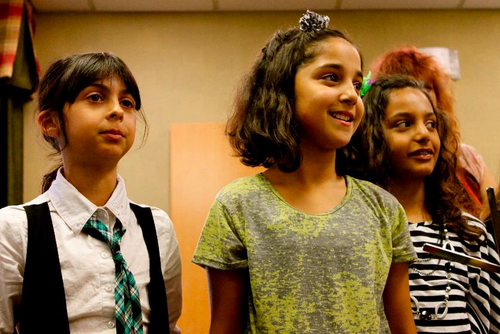
This integrated, project-based learning model motivates learners toward self-mastery while addressing sustainable development goals and community needs such as hunger, poverty, public health, gender equity, eldercare, environment and agriculture.
The organizational philosophy honors the nobility of teachers and learners and promotes true “education as transformation.” Our motto for teachers and learners is “to lead is to serve and to serve is to lead.”
Five Aspects of Our Work
Full-Circle Learning (FCL) fulfills its mission by offering five basic services: Educator capacity building, wisdom exchanges, school scholarships, direct student service and emergency relief. Read about each of these services here.
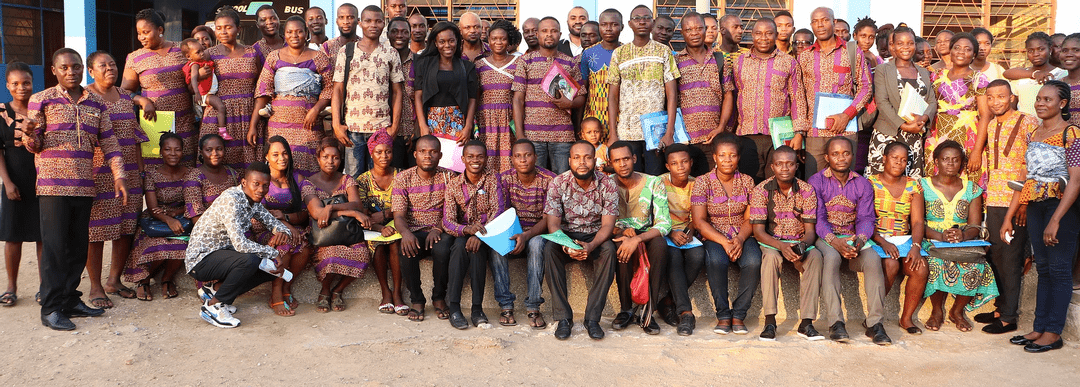
Educator Capacity Building: The Full-Circle Learning nonprofit organization trains new and veteran teachers in the Full-Circle Learning model of education.
Through this training process, our primary line of activity, teachers evaluate their common vision and the noble role they play. They expand their understanding of transformational learning theories, strategies, and practices to develop altruistic identities and collaborative school culture, based on the ultimate outcome of service to an expanding network of humanity.
Customized training and support materials help educators to infuse the following features into every learning unit:- Character education based on a habit-of-heart theme;
- Academic interdisciplinary content based on regional standards;
- Conflict resolution applied to the project goals;
- Thematically linked arts that uplift or advocate;
- Resulting projects that employ all the above, in service to the transformative impacts on the local and global community.
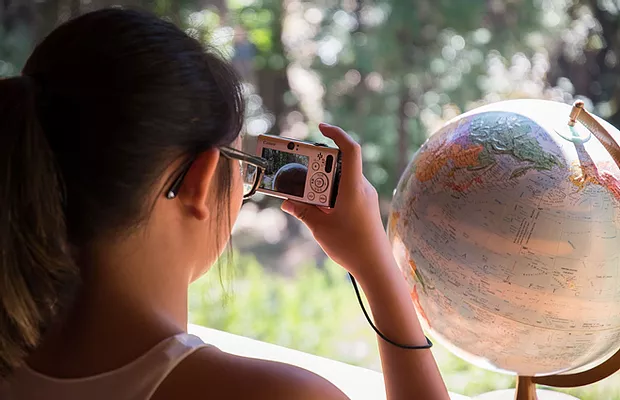
- Wisdom Exchange: FCL assists in the coordination of wisdom exchanges among schools in disparate regions or countries. The process helps learners of all ages honor culturally relevant challenges, regional education standards and local community needs, while also helping them see through the broader lens of collaborative problem solving with diverse groups.
A reflection of the Full-Circle Learning model, the wisdom exchange projects encourage purposeful learning in pursuit of service to the human family. A typical project addresses locally identified needs pertaining to public health, agriculture, climate change, elder care, gender equity, peacemaking. the UN development goals. - School Scholarships: FCL selectively offers opportunities for small project grants and scholarships. Available by invitation only, this assistance is offered to encourage exemplary planning among schools and students engaged in Full-Circle Learning projects.
- Direct Service: Full-Circle Learning manages programs with direct student support through legacy projects such as summer schools.
- Emergency Relief: When Full-Circle Learning schools request assistance with dire temporary needs, we strive to make special help available. Examples have included Ebola Relief and Pandemic-related Food Aid for closed schools. These internal grants are managed by regional facilitators, based on available funds.
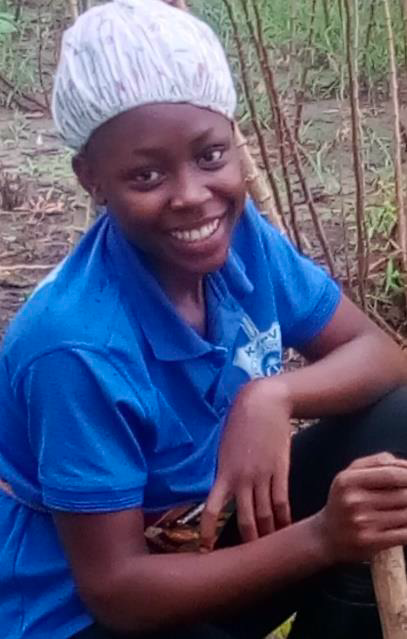
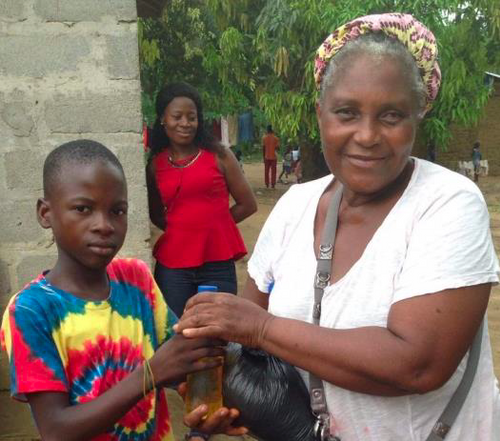
Platforms for Teacher Training
(Onsite Workshops; Online Courses, University Collaborations)
Onsite Workshops: When schools, districts, agencies or CBOs in a region request training, FCL provides free professional development workshops. This service is available based on the accessibility of regional facilitators.
The workshop agenda includes: planning with a common vision; transformational pedagogy; integrated curriculum design and assessment; effective strategies in classroom management and building a positive school culture.
Online Courses: The distance learning resources on in the Resource section of this website include an education course called Why We Learn. Small cohorts can learn together or instructors can apply the material as the basis for a 9-week course, with practicum opportunities. Course sessions appear as slides. An ancillary text and a book called Planning Tools and Templates are included.
University Collaborations: University representatives are free to apply Full-Circle Learning content in teachers’ college courses. China’s Zhejiang Normal University began collaborating with FCL to provide mandatory courses for its teachers college students in the 2000s. Chapman University included a course based on Habits of Humanitarians. The Teachers College of Lesotho received training in 2020. For arrangements, inquire at info@fullcirclelearning.org.
Our Success Stories
Full-Circle Learners Act for Justice

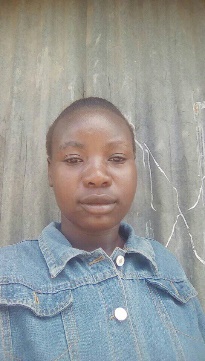
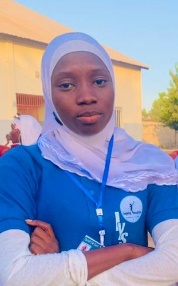
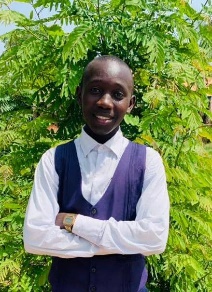
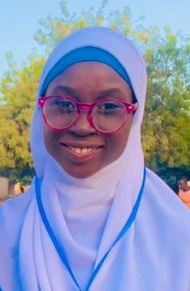
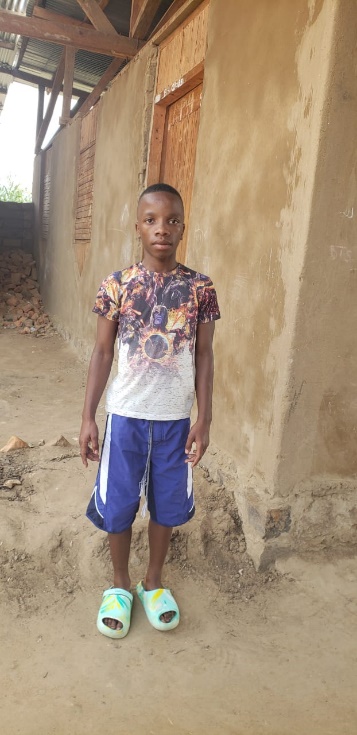
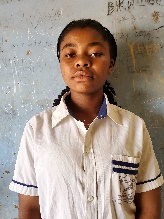
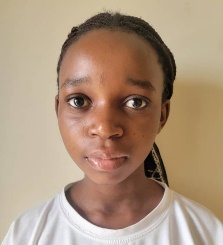

2023 Mahmoudi Justice Scholarship Recipients from Full-Circle Learning Countries (left to right): Akitowa, Navalia, Oumie, Muhammad, Anna, Isharam, Fazil, Mijamanji, and Moise.
Social Justice Partnership
The Mahmoudi Scholarship Panel was pleased to announce the 2023 awardees of thescholarship in justice on December 27, 2023. Full-Circle Learning students from The Gambia, Uganda, and Kenya (listed by first name) were among the winning candidates. This year’s applicants included students and refugees who, in addition to maintaining an excellent academic record, promoted justice in their schools and communities in a variety of ways. These include offering education to children, tribal unification, reduction in teenage pregnancy, deforestation, girls’ education, community development, waste management, and conflict resolution.
Background
Established in 2021 by the Cambridge-based The Ward & Brown Foundation and supported by The Zambian Gems Foundation in Oxford, UK and by Full Circle Learning in theUnited States, the Mahmoudi Scholarship benefits 15-18-year-old African or Asian youth from diverse backgrounds. The scholarship supports those who demonstrate academic excellence coupled with an exceptional approach to promoting access to justice on a community level.
The Mahmoudi Scholarship for Justice was established in honour of one of the most impactful and multi-talented couples in contemporary Iran, Zhinus and Houshang Mahmoudi. Zhinus (Ne’mat) Mahmoudi was the first female Iranian meteorologist and led the country’s National Meteorological Organization. Houshang Mahmoudi was a documentary filmmaker, lawyer, educator and writer. He started Iran’s first children’s edutainment television program, which promoted the dignity of children and youth. After the establishment of the Islamic Republic of Iran, Houshang disappeared on 21 August 1980, and Zhinous was executed on 27 December 1981.
For more information about the Mahmoudi Social Justice scholarships, email barnet@thewbf.org.
Sample Stories
For many more stories from around the world, click on the country locations on the map or click on the most recent community impact report, on the home page.
Sample Videos
Official Full-Circle Learning Youtube channel here
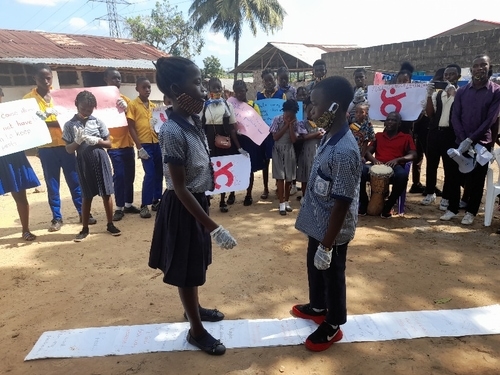
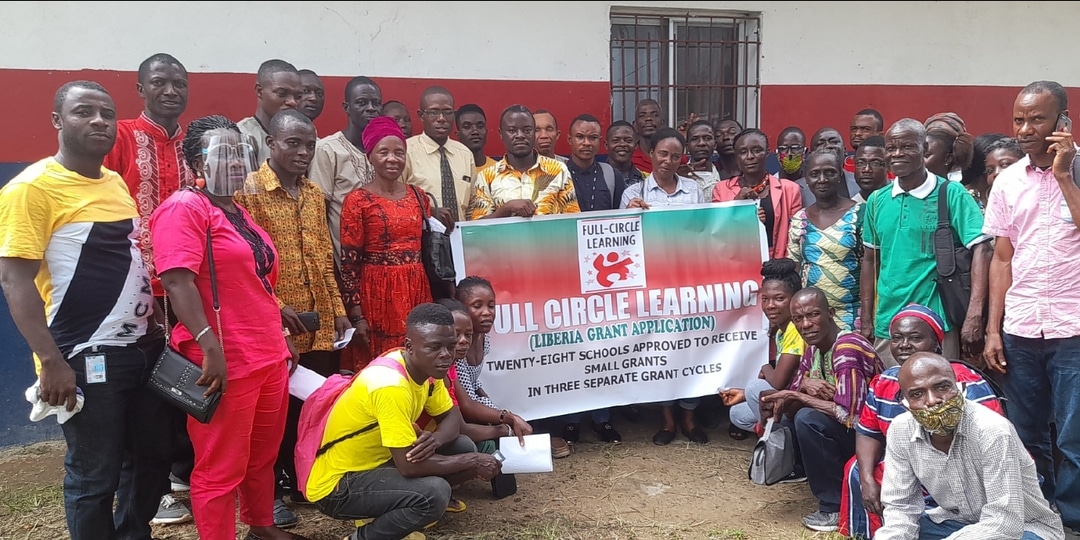
Pictured here, 28 Liberian schools worked together on school garden projects to reduce hunger. Another project in the Gambia taught carpentry to create sanitary eating areas in the marketplace. Students at yet another school planned to teach nutrition to mothers of food-insecure children.
Across a dozen nations, FCL teachers received assistance as they applied the principles of Full-Circle Learning to distance learning outcomes throughout the pandemic. Some teachers and students contributed content to share with other countries for their distance learning units. The countries continue to receive community impact grants, scholarships and free professional development for teachers.
A major highlight occurred in early 2020, when Liberian students remembered their experience with Ebola and reached out in a wisdom exchange with China, whose children had been schooling at home for months already. The secondary students sang a song they wrote, based on the habit of empathy. The young Chinese students, in turn, sent pictures depicting how to complete home learning units.
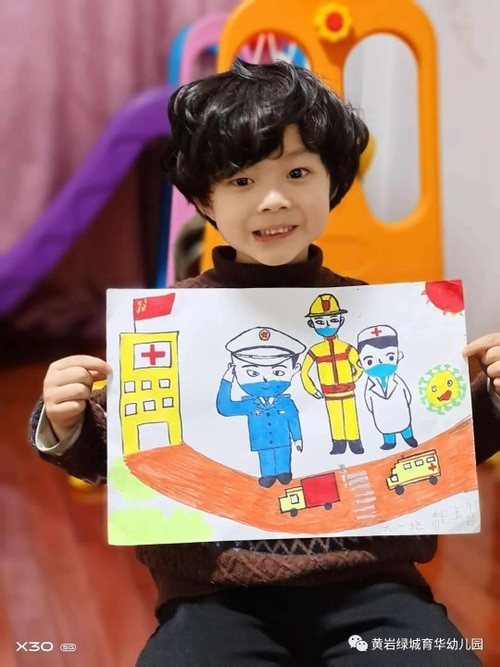
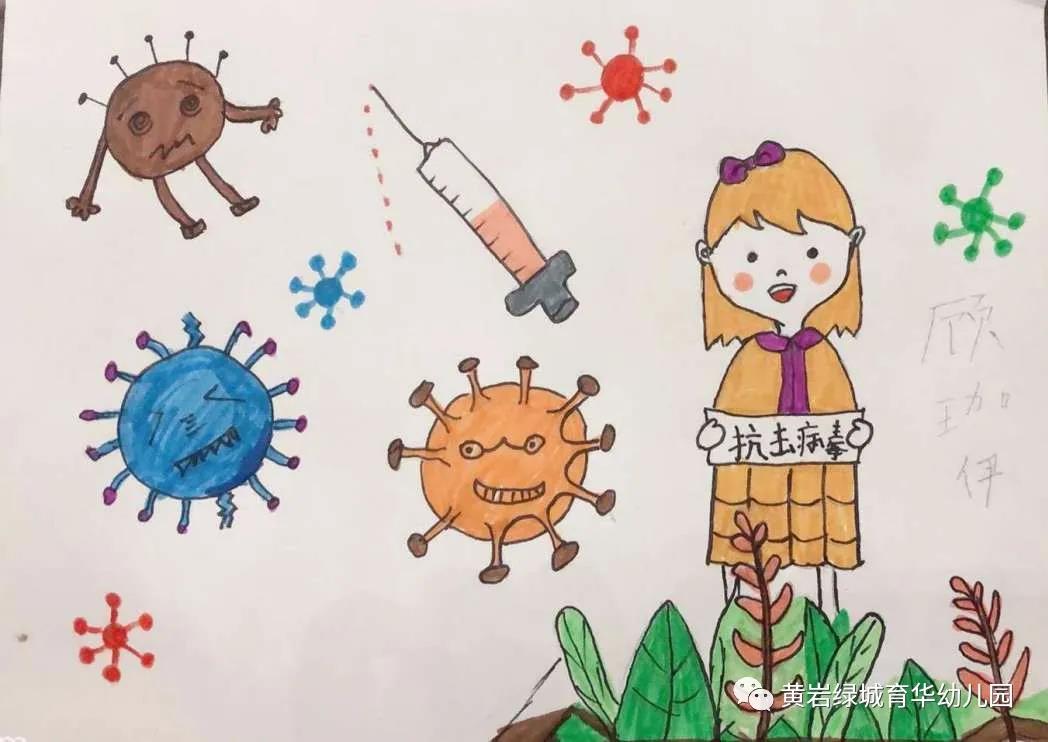
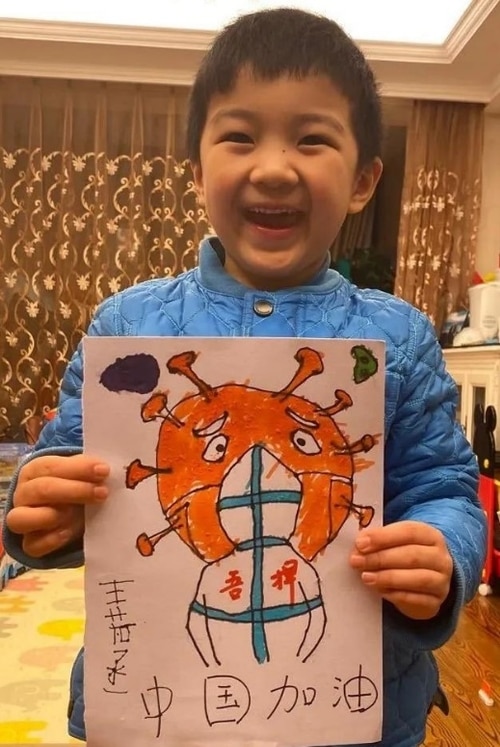
Impact Analysis
Joy, purpose and other-directedness transform learners, learning environments and society. Community-building benefits occur as teachers prioritize motivational integrated-education projects and deliberately apply Full-Circle Learning teaching strategies.
An independent study in 2022 measured the relationship between humanitarian education systems and resilient identities, based on decades of Full-Circle Learning data.
Click here to view the summary.
Research at Full-Circle Learning, conducted through teacher, parent and student surveys as well as through community impact studies, shows the power of altruistic peak experiences in relation to learning. Serving the human family gives purpose to new academic skills, innate creative talents, collaborative capacities and socio-emotional strengths.
A 2020 Study on Intentionality
A 2020 study, conducted by Full-Circle Learning, gathered input from 15 representative regional trainers from the Gambia, Ghana, Kenya, Liberia, Nigeria and Zambia. Their combined constituents included a total of 1,260 teachers and 61,779 learners from a range of learning environments including village, public and private schools, with projects centered on home study during the global school closures. The first survey gauged the level of their adaptations to the pandemic before their group training. The second survey, six months later, measured the impact of their own group-trainer sessions on the quality of teacher training and student learning within their regions. The May survey indicated that all active trainers had discovered ways to engage learners in home-based learning, despite lockdowns and school closures. The October survey conveyed shifting attitudes based on the trainers’ sense of altruistic intent. One hundred percent of the trainers participating in this Likert survey reported “true” or “very true” when asked if they were inspired with new vison and a sense of purpose after completing their own training and planning sessions. Two-thirds wrote additional comments explaining their enthusiasm with terms such as “student purpose” “community motivation,” the chance to inspire “humanitarian students” or “change agents” and the infusion of purposefully integrated activities into academic learning.
Earlier Studies
One independent study of a project in Los Angeles assessed the academic skills of a very small sampling of Full-Circle learners each year over a five-year period. Experiencing the integration of character education, academics and altruistic service projects, 75%-84% of these second- through fifth- graders increased their grade equivalency in math, reading and vocabulary over the first six-month period.
Of those who remained in the study for two or more years, 50% enhanced grade equivalency by two or more grade levels. (In other words, a child enrolled in the first month of the fourth grade might perform at the level of a sixth-grade learner in her eighth month.)
Other California projects assessed the integration of learning and life skills in the years that followed, between 2020 – 2015. Using a combination of parent surveys, student-self-surveys and teachers’ records, these schools documented continual enhancements in student growth.
Characteristics of Learning and Growth
Family members in these schools noticed that children who applied their creativity and their learning to brighten the path of others suddenly wanted to learn even more. In 2007-2009, parents in four pilot programs responded to anonymous surveys about their children, expressing various enhancements beyond their expectations. Parents came from mostly low socio-economic ranges and communities of differing dominant ethnicities. After six months of exposure to the learning model, parents reported higher- than anticipated development in their children. The highest increases occurred in the following categories:
- Motivation to learn89%
- Sense of joy in helping or serving others90%
- Capacity and/or interest in problem solving75%
The relationship of these three items underscored the relationship of empathy-based cognitive action and motivation. In addition to exercising collaborative learning strategies that encourage altruistic identities, each of the schools offered learners at least four major community transformation projects per year—some local and some global. The families’ anonymous reflections on the progress of their own children showcased the pre-pandemic merits of intentionality in low-tech environments.